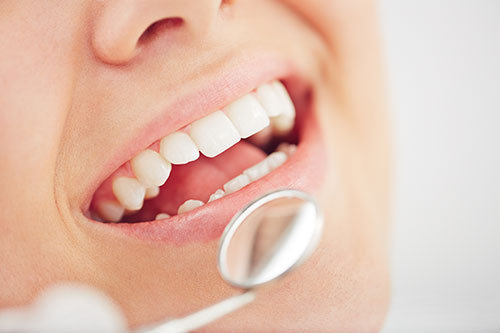The difference between a complete oral exam and a regular check-up exam is the detail of the diagnosis during the exam. During a complete oral exam, time will be taken to review and check every facet covering overall medical health, gum and teeth health. A comprehensive oral exam is recommended every 3-5 years or at the first visit to a new dental office. It gives a complete break down of the health of your teeth, gums and mouth. Comprehensive oral exams may be recommended more frequently if there are concerns.

What to Expect During a Complete Oral Exam
- Complete or updated medical history. Often your overall health affects your oral health and visa versa.
- Addressing your chief concerns regarding any cosmetic or functional problems
- Extraoral exam checking the tissues of your face, lips and neck
- Checking the health of your lymph nodes and looking for any lumps or bumps in the neck
- Checking your TMJ which is the jaw joint for any pain, clicking or deviation
- Intra Oral exam to check the tissues of your cheeks, tongue, the roof of your mouth, floor of your mouth and throat
- Oral cancer screening, checking for any abnormalities
- Checking for any signs of clenching or grinding
- Completing or updating the odontogram and recording any missing teeth, current fillings, dental crowns, implants, bridges, etc.
- Checking for any cavities, chips, wear, fractures, infections, etc.
- Taking any x-rays that are recommended to check the health of your teeth and bone
- Pictures may be taken of your teeth and mouth to assess for changes over time
- Completing a periodontal exam which is an exam of the health of the gums and the best indicator of gum disease
- Reviewing brushing and flossing habits
- Creating a customized treatment plan based on your needs
- Making any necessary referrals such as to an oral surgeon, orthodontist or periodontist

